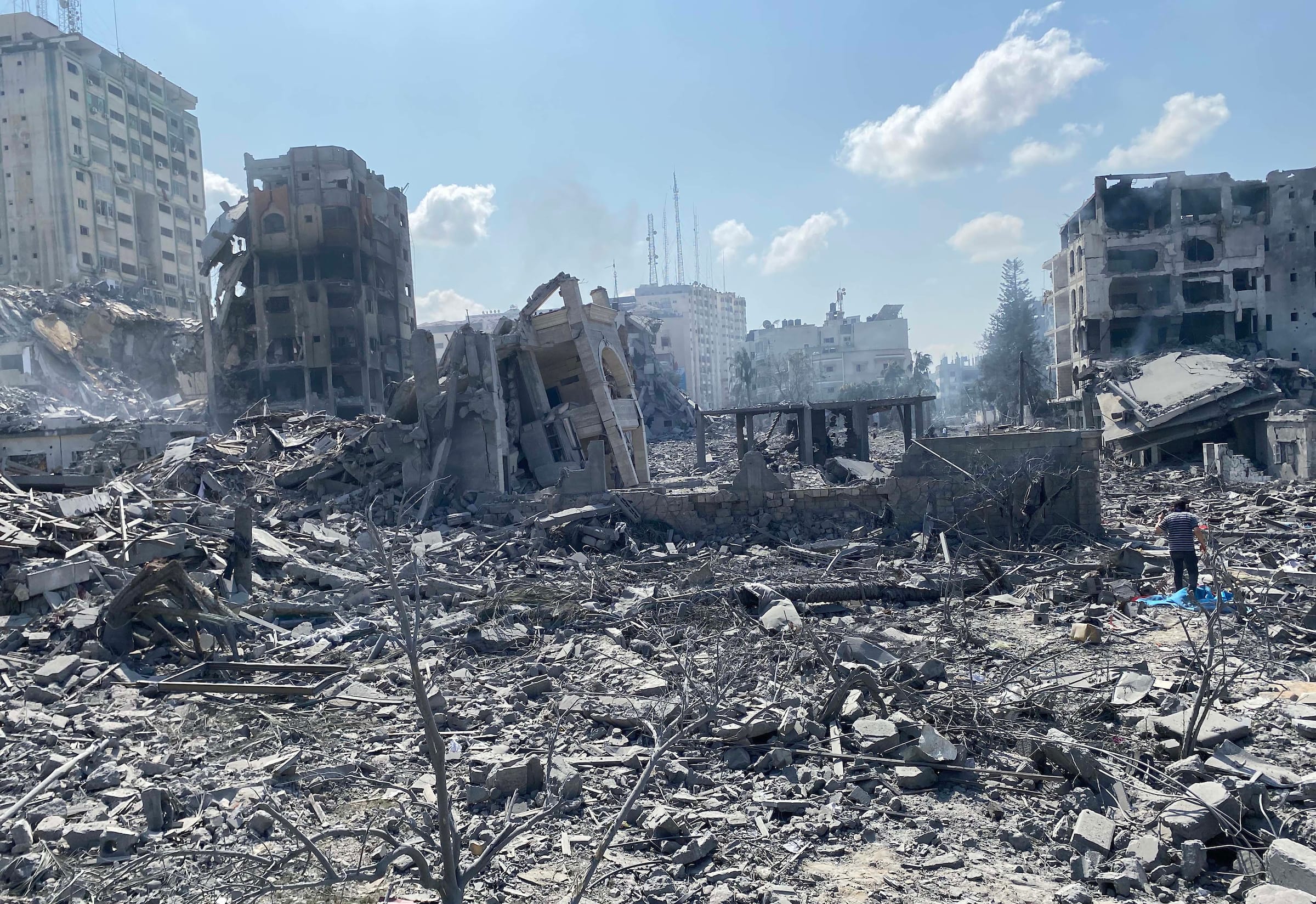Assad is finally gone. Now, after the collapse of the Baath regime and more than 50 years of dictatorship, Syrians face an uncertain future, but they deserve a path to justice. Critical analysis, unity and a refusal to romanticise the oppression of the past are essential to building a just and inclusive society.
By Nour Kanj and Haya Kanj
In just a few days, various armed groups and Islamist militias have overrun large parts of western Syria. The news broke on Sunday morning: Bashar al-Assad had been toppled. And in the evening, the Russian authorities confirmed that Moscow had granted him asylum – “for humanitarian reasons”. In Syrian cities and around the world, Syrians celebrated the fall of the Assad dynasty after decades of brutal rule. Hope is in the air, but the future of our homeland is more than uncertain. Whether the rival factions can manage to reach an agreement for the good of the Syrian people is crucial. So is taking into account the regional context of the revolution.
The past year has been marked by devastating events in the Middle East, where the world stood by as Palestinian and Lebanese civilians suffered massacres and displacement at the hands of the Israeli military. The violent genocide against the people of Gaza represents one of the most dreadful examples of moral failure in modern history. Now the global political spotlight has shifted to Syria. And regional would-be hegemons are exploiting the chaotic moment for their own strategic ends: Turkey and its allied militias are bombing Kurdish towns in northern Syria. Israel has sent two more battalions to the illegally occupied Golan, broken through the demarcation line into Syria with tanks for the first time in 50 years, and occupied other areas there in the demilitarised buffer zone, as well as the Syrian side of Mount Hermon on the Lebanese border.
The current situation in Syria is extraordinarily complex, making it challenging to understand and explain clearly. Only a few days ago, no one could have imagined a scenario in which the Assad regime collapsed. We cannot claim to offer a definitive analysis of the political dynamics there, and it has become increasingly difficult to form a coherent opinion. We believe it is crucial to continue questioning and analysing the political scene in Syria. It is essential to expose the fabrications of any party that tries to frame its political agenda in simplistic terms of good versus evil, often with the aim of manipulating the public.
In recent years, neither the Syrian regime nor the opposition has been able to present a compelling narrative. President Assad has portrayed himself as defending Syria against radical Islamist groups and Western interference. But even if this argument is partly valid, Assad must take responsibility for the current crisis. Leadership is not only about power but also about accountability, and his failure to protect Syria from the alleged terrorism and foreign intervention suggests that he should have stepped aside long time ago for someone more capable. Moreover, while the regime claims to uphold secularism, it has allowed radical Iranian religious groups to infiltrate the state and military, creating networks that will be difficult to dismantle. Not to mention the Russian intervention, which, while not as culturally damaging as the Iranian involvement with its reactionary ideas and religious agendas, has nonetheless significantly undermined Syrian sovereignty.
Conversely, the opposition has argued that the Assad regime has used propaganda to discredit what began as a secular and pro-democracy revolution for political freedom and human rights. There is some truth to this claim, especially in the early stages of the uprising. The Assad regime was notorious for its brutality, including the torture and imprisonment of anyone who thought of criticising the regime. But the opposition has also failed to present a vision that reassures secular Syrians, non-religious Muslims, non-Muslims and especially women that their rights will be protected in a post-Assad Syrian government. Concerns about potential Islamist policies that have no place in Syrian law in modern history, such as compulsory veiling, gender segregation or alcohol bans, remain unaddressed, undermining confidence in the opposition’s ability to uphold secularism and inclusivity.
There is absolutely no simple explanation or solution to the Syrian crisis, and it would be misleading to try to impose one now, after the end of the Assad era, while blaming each other. Many people, especially those who have been directly affected by violence, displacement or economic collapse, whether they are victims of regime violence or of one of the opposition groups that have emerged on the Syrian political scene in recent years. These victims may be drawn to the simplistic narrative of choosing sides for the sake of emotional relief. However, the lack of a unified and logical framework highlights the importance of continued analysis and critical questioning. This is particularly urgent given the complexity and significance of this transitional period in Syria, as well as its implications for the region and the world. What is happening in Syria now, as significant as it is, is only a small part of a much more complicated story. This story remains difficult to analyse and explain clearly at the current stage of Syria’s political transformation, which has been shaped by specific understandings between the many parties involved.
A period of absolute chaos and uncertainty is now almost inevitable, and while we hope it will be as short as possible, there is no guarantee that it won’t continue for years to come. During those years, we should keep an important term in mind: „rosy retrospection“. It refers to the psychological tendency to see the past in a more favourable light than it was. This concept is particularly relevant to the evolving political situation in Syria. There may come a time when Syrians nostalgically remember the Assad dictatorship as better than it was. When that happens, it will be important to remember the regime’s betrayals: selling out Syria’s sovereignty to Iranian religious factions, torturing political prisoners, turning its weapons on its own people, neglecting border security and failing to confront almost daily Israeli aggression – all in the pursuit of power.
Syria’s future is unlikely to be a utopia, as renowned historical and political thinkers remind us that such profound societal changes are fraught with difficulty. Nevertheless, Syrians must remain vigilant and resist the temptation to let hatred or revenge guide their decisions. Instead, they should strive to preserve a clear and realistic understanding of the regime’s brutality and prioritize unity, realism, and justice as they navigate an uncertain future. The Iranian experience, particularly during and after the Woman, Life, Freedom movement, serves as a powerful lesson in how Iranian citizens, desperate to escape the current radical regime, are gradually tolerating the Shah’s son – overlooking the history of brutality and corruption associated with his family. Romanticising past regimes out of frustration with present struggles risks perpetuating cycles of oppression. Now is the time for Syria to remain vigilant and realistic, avoiding the pitfalls of taking sides or making political decisions driven by hatred or a desire for vengeance. Instead, we must maintain a clear and realistic picture of the Syria of today as we face the unfortunately inevitable challenges of the future.





